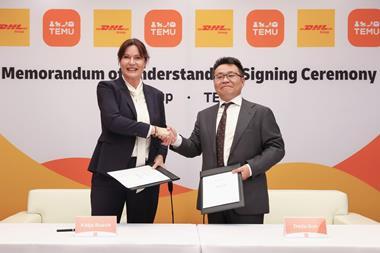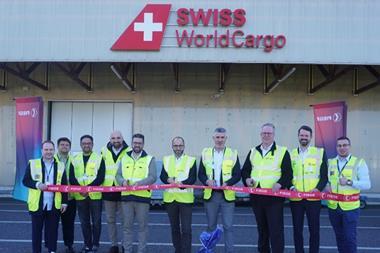Panalpina has moved to secure airfreight capacity for the peak season, but has warned that supply chains could be equally affected by constraints on the ground.
The Switzerland-based freight forwarder said that it had taken similar steps to last year to secure airfreight capacity for customers as it expects another busy peak season.
This includes procuring extra flights for its charter operation and advising partners and customers to make changes in their preparations and requests for quotations so that they can meet their transportation needs.
"And we are continuously reconfirming allocations and ensuring additional capacity across the world: Mexico, Brazil, and South Africa are only some of the hottest markets," the forwarder said.
"We let [customers] know of the negative impact of procurement being penny wise and dollar foolish as the later you commit, the more expensive it will get.
"The less you pay, the more likely your cargo will sit on the tarmac or in a transit warehouse waiting to be uplifted or picked up for onward distribution. And we don’t want that to happen."
Panalpina pointed out that airfreight rates are around 15-20% higher than they were in 2017 and it expects further increases as the industry heads into the fourth quarter.
However, it also expects constraints on the ground this year.
“It’s not just about capacity this year, now we’re significantly increasing our focus on execution on the ground,” said Panalpina global head of airfreight Lucas Kuehner.
“We’re informing airlines and their third-party handlers of our shippers’ requirements. Time to market is critical and you have to be able to execute, not promise and have the cargo stuck for three days in someone’s warehouse."
The forwarder added:"Capacity constraints will cause delays and they could worsen if operations on the ground, i.e. trucking, warehousing, ground handling and customs clearance, can’t deal efficiently with the high cargo volumes.
"Problems on the ground such as terminals in Europe struggling with a surge in volumes are something likely to happen again in the fall."
Europe's largest cargo airport, Frankfurt, has already struggled this year with delays, while Schiphol has lost freighter operations because of slot restrictions.
Panalpina also warned that the constraints may not only be confined to Europe, with changing supply chains also putting pressure on hubs in Southeast Asia.
It said that the current trade tariff tit-for-tat battle between China and the US could result in products made in China being routed through Malaysia, South Korea, Vietnam and the Philippines, relabeled and repacked, and then flown to their final destination from there.
Added Kuehner: “This year, we are not only in close contact with our customers and airlines, but we are also talking to ground handlers and truckers to look at possible bottlenecks.
"We are even drawing their attention to specific arrival dates and times for incoming cargo from different airlines so that they can prepare accordingly.
"This includes providing tonnages and special handling requirements. All our preparations at this stage have one goal – to successfully use the capacity we have secured for our customers during peak season.”
Read more freight forwarder news
Sign up to receive Air Cargo News direct to your inbox for free










